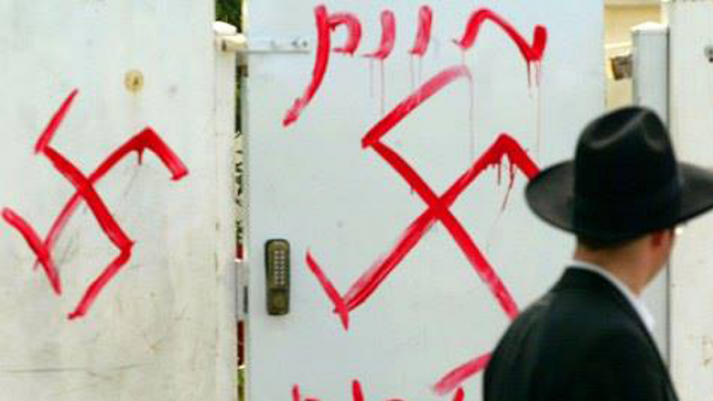Last week I was privileged to speak to two very different audiences about the Middle East and Israel.
Though the talks had the same title, “Understanding the Middle East: Iran, the Sunni-Shi’ite War, the Israeli- Palestinian Conflict, Anti-Semitism and the Delegitimization of Israel,” the reasons I was invited, and the questions I received were profoundly different.
The first talk was at Purchase College in Westchester County, New York. I had been invited as part of my college speaking tour on the Middle East which brought me to many universities in the Northeast, i.e. Harvard, Cornell, Brown, SUNY Oneonta SUNY Binghamton and more. The first scheduled speaking date was postponed because of a snowstorm. Coincidentally, a week before the rescheduled talk, the campus was defaced with anti-Semitic and racist graffiti including swastikas and a noose.
There is a rash of anti-Semitism now sweeping college campuses. I know this because my organization, Middle East Political and Information Network (MEPIN), is continually being asked to sign letters to college presidents throughout the country responding to the growing number of anti-Semitic incidents, insisting that universities maintain a safe environment for Jewish students.
I was told that even before this anti-Semitic incident, the topic of my speech had created a controversy on campus, especially among a growing anti-Israel movement, and that I should be prepared to receive a hostile reception. The anti-Israel group did ask some provocative questions during my talk, but to their credit they choose not to interrupt the talk or intimidate Jewish students as other anti-Israel groups such as Students for Justice in Palestine have done. Perhaps the police presence had something to do with it.
Hillel of Westchester, and the Westchester pro-Israel community, responded to the display of anti-Semitism by publicizing my talk to the local Jewish community and rallying support for the students by coming out in large numbers. Purchase College is not known as a hotbed of political activism, but nowadays anti-Israel activists of the BDS (Boycott, Divestment and Sanctions) movement are targeting almost every college, and the anti-Israel activity often turns into simple, ugly anti-Semitism.
The State Department’s working definition of anti-Semitism says that if you deny the Jewish State of Israel the right to exist, or hold it to a standard not asked of any other nations, that is anti-Semitism. Advocates of BDS against Israel fit that definition when they have nothing to say about the current major violators of human rights around the world, denying basic rights to women, committing mass genocides, and abrogating the rule of law to punish their political opponents.
Later in the week I was invited to speak at a non-denominational Protestant Church of primarily African American New Yorkers. I cannot remember a more engaged audience, eager to learn what is really going on in the Middle East. What impressed me most was that they were totally aware of the way many mainstream media outlets editorialize the news, as they report it in their supposedly non-editorial pages, fitted to their own opinions. I only wish the Progressive readers of The New York Times were as astute as this audience. They were passionate about Israel, frustrated with the administration’s pressure on Israel and its readiness to capitulate to the Iranians. Members of the audience asked me how they could become active in advocating for Israel.
Both groups, college kids under attack for their pro-Israel activism and church groups willing to advocate for Israel, present challenges and opportunities for the pro-Israel American Jewish community.
